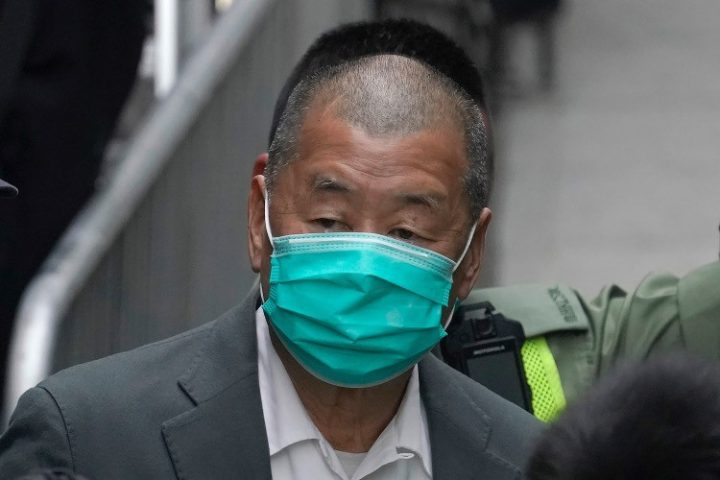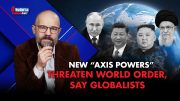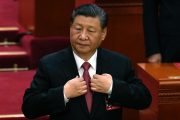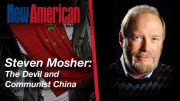
Hong Kong media mogul Jimmy Lai was sentenced to a jail sentence of five years and nine months on December 10 after being convicted of fraud in a contractual dispute.
Lai, the 75-year-old founder of the now-defunct Apple Daily newspaper, had just finished a 20-month jail term due to various charges, such as his role in demonstrations and gatherings deemed illegal by the pro-Beijing regime.
Although prior convictions were linked to Lai’s role in the massive protests that erupted in Hong Kong in 2019, the most recent sentencing was due to the fact that one of his companies breached the terms of the lease on his newspaper’s offices.
Lai and former Apple Daily executive Wong Wai-keung were both deemed guilty of fraud in October in what District Judge Stanley Chan described as a “planned, organized and years-long” scheme.
Prosecutors said that a consultancy firm Lai ran for his personal use had taken up office space that Apple Daily had rented for printing and publication. According to prosecutors, such an action was in violation of the terms of the lease Apple Daily signed with a government company and was equivalent to fraud.
On the other hand, defense lawyers earlier asserted that the case should have been a civil suit instead of a criminal prosecution, stating that the square footage involved was minimal.
Besides his jail term, Lai was fined HK$2 million (US$257,000) and prohibited from managing companies for eight years.
Co-defendant Wong, 61, was imprisoned for 21 months, with the judge comparing him to “the getaway driver for a robbery.”
The judge said the sentence was in response to a “simple case of fraud,” which can be traced back to the 1990s, when the lease first came into effect.
Moreover, the judge lambasted Apple Daily for taking advantage of its reputation as a well-known media company as a “protective shield,” which he alleged dissuaded the landlord from taking action against the breach of lease terms.
However, the judge insisted that the sentencing had no links with politics or press freedom.
“Don’t draw any connection to politics,” Judge Chan said.
One of Hong Kong’s eminent freedom activists, Lai has been a staunch critic of the communist regime in mainland China. As a result, he has been openly detested by Beijing.
Apple Daily has been acerbic in its criticism of the Communist Party of China for years. The newspaper was one of the city’s most popular media outlets and championed greater freedoms in the city.
The publications ceased to exist last year after the sweeping national-security law imposed by Beijing on Hong Kong froze its funds. This law was endorsed by Chinese President Xi Jinping without public debate or any vote by Hong Kong’s elected legislature.
Subsequently, several of the publication’s senior staff were charged alongside Lai under the same law, mainly for their attempts to rally for international sanctions against China.
Critics of the communist regime in China posit that the law is a crackdown on political dissent and free speech and undermines the rights and freedoms promised to Hong Kong under the “one country, two systems” framework. Hong Kong was promised certain rights and freedom after the 1997 handover back to China following British colonial rule.
Meanwhile, Lai is still awaiting his national-security trial. Earlier, a Hong Kong court postponed the start of this trial at the request of the government.
The court will convene again on Dec 13 to discuss a timetable for Lai’s trial, which was originally slated to start on Thursday.
The government wanted a delay to prevent Timothy Owen, Lai’s British lawyer, from representing him.
After failing to get the local courts to ban Owen, Hong Kong’s pro-Beijing Chief Executive John Lee declared that he would ask Beijing to evaluate whether foreign lawyers are permitted to take on national security cases under the law. Lee justified his stance by saying that the government presently has no way to ensure that overseas lawyers have no conflict of interest, or have not been influenced by foreign governments.
The high-stakes matter of referring Hong Kong cases to mainland Chinese courts was one of the factors leading to the massive and occasionally violent demonstrations in 2019 that eventually caused Beijing to enforce the security law and arrest Lai. The extradition legislation that would have enabled Hong Kong to transfer suspects in some criminal cases to the mainland has since been withdrawn.
Lai faces a possible life sentence if he is deemed guilty of collaborating with foreign forces in this trial.
Prosecutors allege that Lai campaigned for international sanctions against Hong Kong and China via his newspaper.
Lai’s case would be the first time the National People’s Congress (NPC) Standing Committee provides an interpretation of the national-security law — the NPC is next expected to convene later this month.
Beijing may designate a group of lawyers to handle national-security law trials, the South China Morning Post reported, quoting an unidentified individual.
The United States, the U.K., and other Western nations have condemned the closure of Apple Daily and the security law, with U.S. President Joe Biden stating that Beijing was using it to “suppress independent media and silence dissenting views.”
In response to Lai’s most recent conviction, U.S. Department of State spokesman Ned Price appealed to the Chinese government on December 11 to respect freedom of expression, including press freedom, in Hong Kong following Lai’s conviction on two charges of fraud.
“The United States condemns the grossly unjust outcome of Jimmy Lai’s latest trial sentencing,” Price posted on Twitter. “By any objective measure, this result is neither fair nor just.”
Beijing dismissed U.S. allegations and condemned what the communist regime perceived as “irresponsible comments.” Furthermore, it lampooned the United States for its attempt to “whitewash criminals.”
Lai is one of several pro-freedom activists detained by Hong Kong police in recent years as pro-Beijing authorities tighten their reins on power and clamp down on dissent in the city. Other notable activists persecuted by the communist government include Roman Catholic Cardinal Joseph Zen, who was recently charged with failing to register a now-defunct fund for pro-democracy protesters. As a result, the cardinal was fined HK$4,000 (US$512) by a local court.
Beijing’s tightening hold on power comes amid increasing public dissent and criticisms of Xi’s leadership and of the Communist Party itself. Recently, nationwide protests erupted against China’s draconian Covid-19 restrictions’, with some protesters calling for Xi’s resignation and the end of the Communist Party.
“People are fed up with the restrictions,” said Yaqiu Wang, a senior China researcher for Human Rights Watch. “There’s so much pent-up anger and frustration, because there have been massive human rights violations as a result of the restrictions, not because of COVID itself.”



